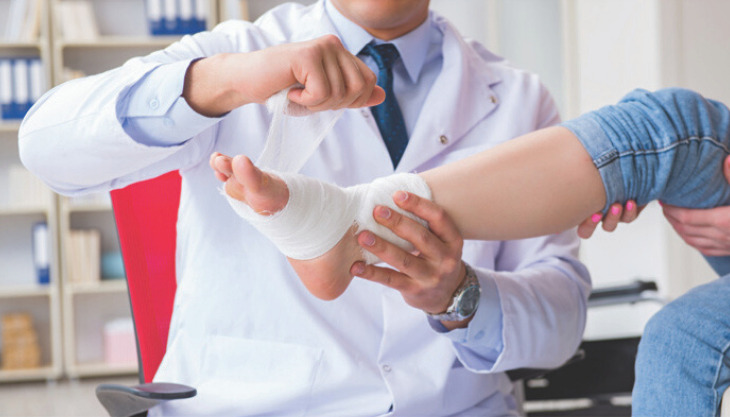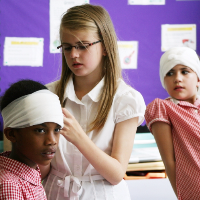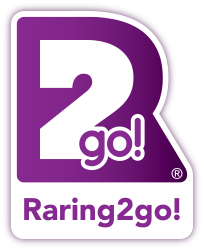St John Ambulance – Strains and Sprains

 Basic first aid skills from St John Ambulance can save lives – St John Ambulance – Strains and Sprains
Basic first aid skills from St John Ambulance can save lives – St John Ambulance – Strains and Sprains
Injuries to the soft structure around the bones and joints are commonly called strains and sprains. They are often associated with sports activities.
Here is some advice from St John Ambulance:
St John Ambulance – Strains and Sprains – What to look for
* Pain and tenderness
* Swelling and bruising
* Difficulty moving the injured area, especially if it’s a joint.
What to do
- R – Rest the injured part. Help them to sit or lie down and support the injured part in a comfortable position, raised if possible
- I – Apply an Ice pack. Try and cool the area by putting an ice pack, or a bag of frozen vegetables wrapped in a tea towel against the injury. This can help to reduce the swelling, pain and bruising
- C – Provide Comfortable support. Leave the ice pack in place or wrap a layer of soft padding around the area, such as cotton wool. Secure the ice pack or soft padding with a conforming bandage that covers the area to the next joint, but make sure it’s not too tight by checking their circulation every 10 minutes. To do this, press a nail or skin beyond the injured area for five seconds until it goes pale. If the colour doesn’t come back within two seconds, the bandage is too tight so you’ll need to do it again
- E– Elevate the injured part. Support the injury in an elevated position to help minimise swelling and bruising. You could do this by placing pillows underneath the injured part
- After using the RICE method, advise the casualty to rest. If the pain is severe or they cannot move the injured part, seek medical advice.
For those looking for quick, easily accessible first aid information, the St John Ambulance app is available free on smartphones and the website offers demo videos, an interactive game, and lots of free advice. For more information about first aid courses please call 0844 770 4800
For more life saving, first aid tips from St John Ambulance CLICK HERE



